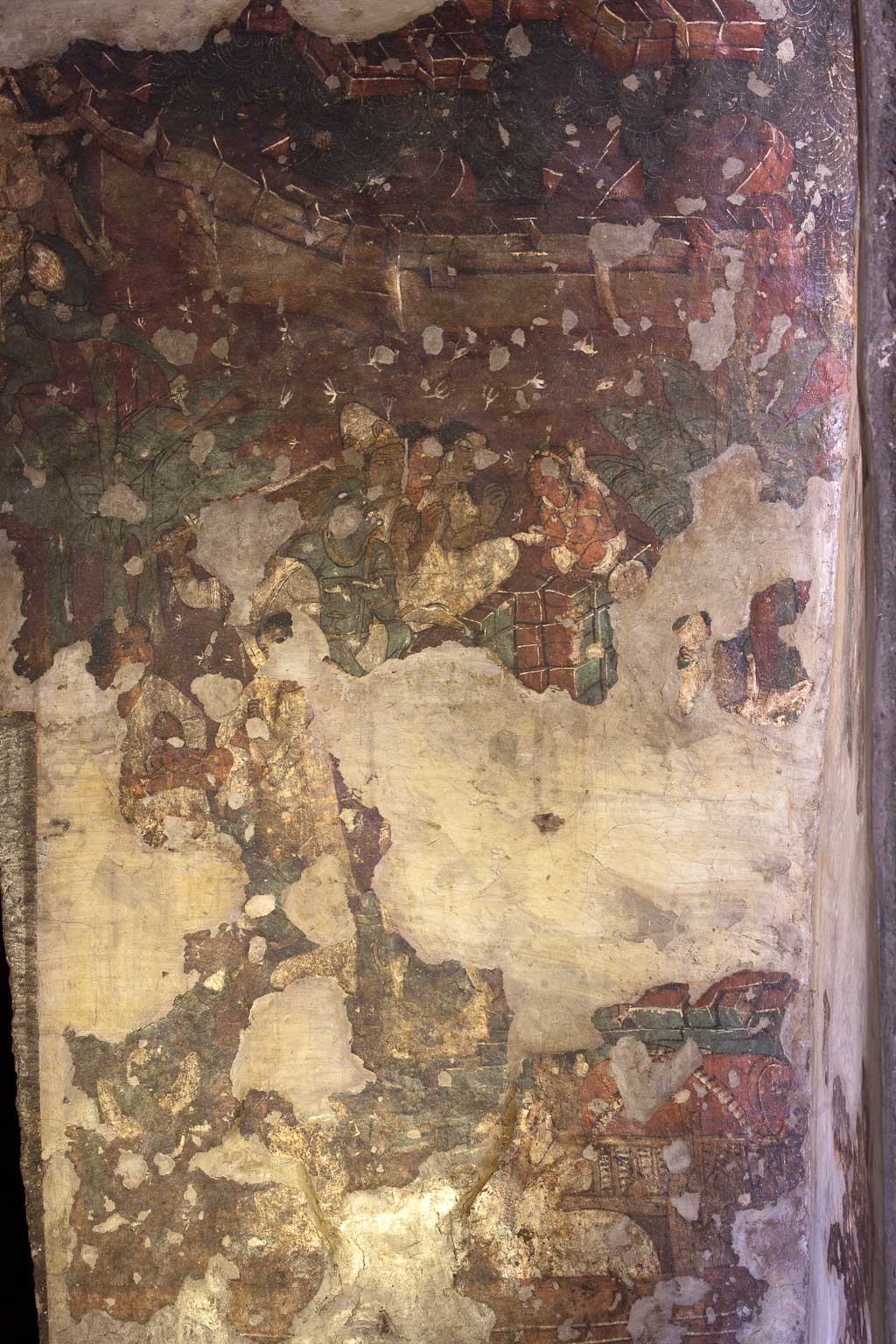Cave No. 16
Identification: Schlingloff (1977a, p. 472–476).—
When Prince Udaka (Water) grew up, people would call him Mūkapaṅgu, meaning ‘Dumb and Numb.’ He had seen his father pronouncing death sentences. So, he feigned an incapacity to become a king. Nobody could make him utter a sound or move a limb. The doctors diagnosed that he was physically and mentally normal, and that he was feigning it. They counselled the king to give him a death threat. The king accordingly ordered his execution. At the time of his said execution, the prince uttered a mysterious verse. So, he was presented back to the king, but remained dumb and numb. This happened twice. In the third attempt, he got scared by his imminent execution; he broke his silence and faked inability to move. The executioners reported this to the king. The prince explained that the reason for his strange behaviour was that in his previous life he had failed to carry out the duty of his royal office and suffered in hell for a long time. To avoid a similar fate, he faked his disabilities, which he hoped would relieve him from the duty of pronouncing death sentences to prisoners. He requested his father to allow him to become an ascetic. His father granted him his wish. After revealing the meaning of the mysterious verses, the prince left the palace with other like-minded men.—Prince Mūkapaṅgu was none other than the Buddha in a former existence.
—Source: Singh 2019, 31-33; Schlingloff 2013, I, 178








